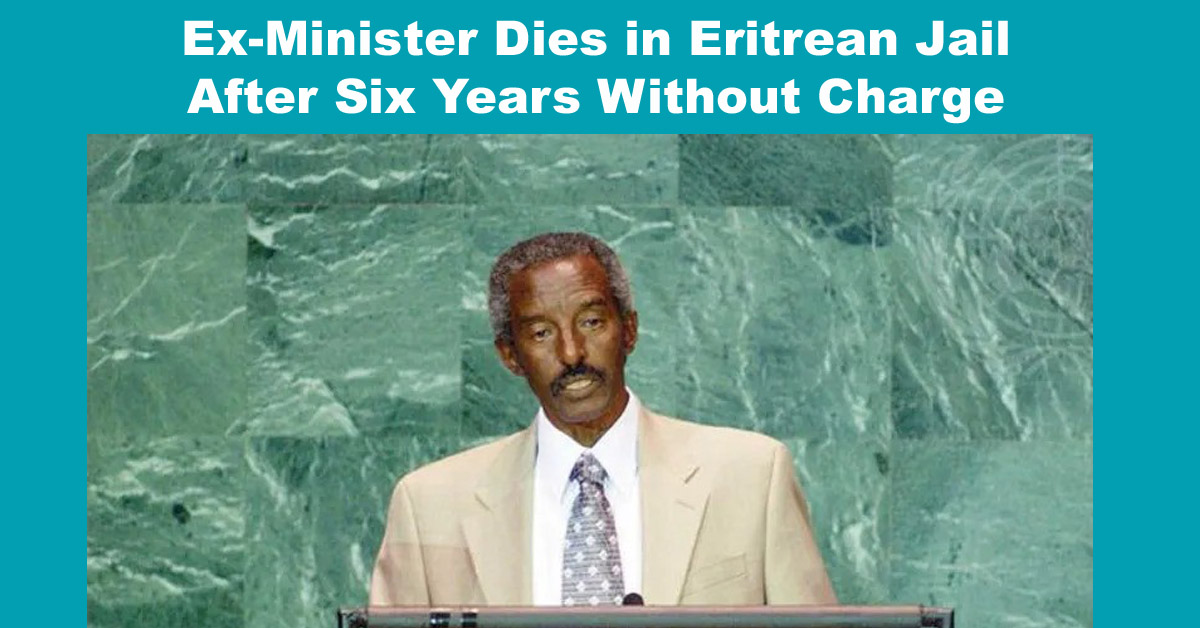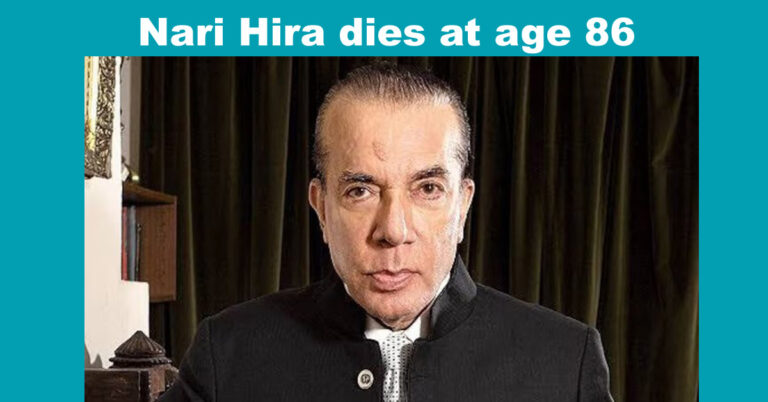Ex-Minister Dies in Eritrean Jail After Six Years Without Charge
Ex-Minister Dies in Eritrean Jail After Six Years Without Charge. Ex-minister Berhane Abrehe has died in an Eritrean prison after six years of detention without charge. Once Eritrea’s longest-serving finance minister, Abrehe was imprisoned in 2018 following the publication of a critical book about President Isaias Afwerki. The government’s secrecy about his death and the conditions of his imprisonment highlight ongoing human rights concerns in Eritrea.
A Tragic End for Berhane Abrehe
Berhane Abrehe, a former Eritrean finance minister and staunch critic of President Isaias Afwerki, has died in prison at the age of 79. This marks the end of a grim chapter for one of Eritrea’s most vocal dissenters, who spent the last six years of his life incarcerated without formal charges.
From Minister to Prisoner
A Long History of Service and Discontent
Berhane Abrehe served as Eritrea’s finance minister for 12 years, making him the longest-serving individual in that role. His tenure came to an abrupt halt in 2012 after he fell out with President Isaias Afwerki over budgetary transparency. His call for a more open and accountable government was met with resistance, culminating in his removal from office.
A Controversial Book and Imprisonment
In 2015, Berhane published a two-volume book titled My Country, which harshly criticized President Isaias, describing him as a “dictator” and calling for his resignation. The book also challenged the president to a public debate and demanded the reinstatement of Eritrea’s dissolved national assembly. These actions marked Berhane as a significant threat to the government’s status quo.
In 2018, after his book had been published, Berhane was detained under undisclosed circumstances. His family, who had already endured their own ordeals—his wife was imprisoned and later released in 2019, while one of his sons was detained—reported that Berhane’s health deteriorated during his imprisonment.
The Unresolved Questions
Government Secrecy and Human Rights Concerns
The Eritrean government, known for its secrecy, has yet to release Berhane’s body or clarify the circumstances of his death. Authorities have notified his family of his death, but details remain sparse. The family has heard that he may be buried in the Asmara Patriots Cemetery, reserved for veterans and national service members, but this has not been confirmed.
Eritrea has faced widespread criticism from the United Nations and human rights organizations for its severe human rights abuses, including torture, forced disappearances, and the detention of thousands under inhumane conditions. Berhane’s imprisonment without trial is a stark example of these broader issues.
A Legacy of Silence and Oppression
Berhane’s legacy is one of resilience and defiance in the face of an oppressive regime. His efforts to demand accountability and transparency in Eritrea remain a poignant reminder of the challenges faced by those who dare to speak out against authoritarian rule.
The Broader Context
Historical and Current Repression
The plight of Berhane Abrehe is part of a larger pattern of repression in Eritrea. Since gaining independence from Ethiopia in 1991, President Isaias has ruled without national elections, and political parties, civic organizations, and independent media are banned. The case of the “G-15,” a group of senior officials arrested in 2001 for criticizing the president, underscores the regime’s intolerance for dissent.
International Response
The UN Assistant Secretary General for Human Rights, Ilze Brands-Kehris, has highlighted ongoing human rights violations in Eritrea, including arbitrary detention and torture. Despite these reports, impunity persists, and the international community continues to grapple with how to address these grave abuses.
Conclusion
Berhane Abrehe’s death in prison serves as a stark reminder of the harsh realities faced by those who oppose authoritarian regimes. As Eritrea remains under the tight grip of President Isaias Afwerki, the struggle for human rights and freedom continues for those brave enough to challenge the status quo.
Famous Memorial and Join TELEGRAM
Ex-Minister Dies in Eritrean Jail After Six Years Without Charge
FAQs
Q: Who was Berhane Abrehe?
A: Berhane Abrehe was a former Eritrean finance minister and a prominent critic of President Isaias Afwerki. He served as finance minister for 12 years before being removed from his position in 2012.
Q: Why was Berhane Abrehe imprisoned?
A: Abrehe was imprisoned in 2018 after publishing a book titled My Country, in which he criticized President Isaias Afwerki and called for his resignation. He was detained without formal charges.
Q: What are the current details about his death?
A: Berhane Abrehe died in prison at the age of 79. The government has notified his family but has not provided details about the cause of death or the location of his body. There are reports that he might be buried in the Asmara Patriots Cemetery.
Q: What is known about the conditions of his imprisonment?
A: Details about the conditions of Abrehe’s imprisonment are sparse. His family has reported that his health deteriorated while in custody, but no specific information has been released by the government.
Q: What broader issues does this case highlight?
A: Abrehe’s case underscores ongoing human rights issues in Eritrea, including arbitrary detention, lack of political freedoms, and government secrecy. It reflects the broader pattern of repression and intolerance for dissent in the country.
Q: How has the international community responded?
A: The international community, including the United Nations and human rights organizations, has criticized Eritrea for its human rights violations. Reports of torture, forced disappearances, and inhumane detention conditions continue to draw global concern.






